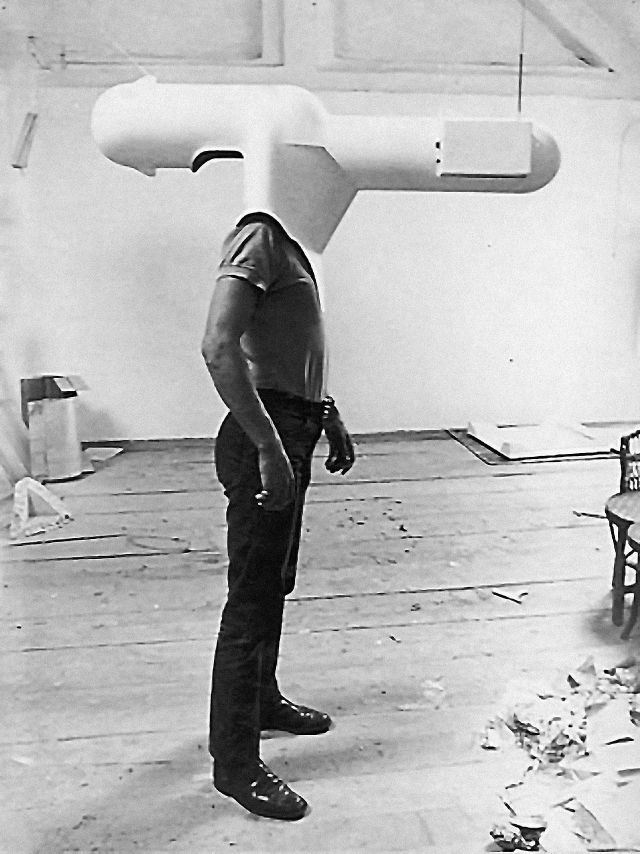
Around fifty years ago, a man wore a submarine-like white helmet that extended from front to back. His entire head disappeared into the futurist capsule; only the title betraying what was happening. TV Helmet created in 1967 is a technical device that isolates the user while imbedding him or her in an endless web of information: closed off against the outside world, the wearer was completely focused on the screen before his eyes.
TV Helmet is the work of Walter Pichler and it doesn’t merely formally anticipate the cyber glasses developed decades later; Pichler also articulated questions of content in relation to the media experience long before the “virtual world” was even discovered. Even back then, Walter Pichler was probably already a media critic as he’s remained one to this day. But he is also a conceptually thinking artist who explored space early on—beyond the four walls and the structures of cities. Pichler called his invention a Portable Living Room.
His pioneering designs, The Prototypes, are pneumatic plastic living bubbles from the sixties that sought answers to the questions of tomorrow’s individualized life somewhere between the areas of design, architecture, and art. With their reference to space travel and modernist materials, Pichler’s futurist sculptures inspire a desire for the future— even if his messages are said to possess a sceptical or sarcastic undertone.






Leave a Reply